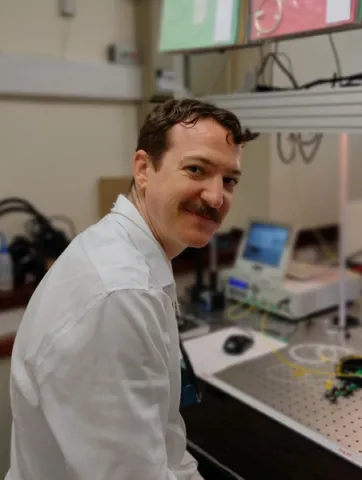About the project
This project will explore the use of lasers and optical hollow-core fibres to detect ionising radiation, aiming to realise distributed radiation sensing along a single fibre. A novel detection capability of this kind may find applications in areas ranging from nuclear threat reduction to particle accelerators and future fusion reactors.
The detection of ionising radiation is essential in diverse fields, including nuclear threat detection for defence and security, particle accelerators for fundamental physics research, and nuclear fusion reactors for future energy supply. Whereas existing sensing technologies rely on individual detectors that measure radiation at specific locations, a distributed fibre radiation sensor could offer a highly innovative approach, capable of detecting and mapping radiation along a single deployed fibre and potentially replacing many individual detectors.
This project will seek to realise distributed radiation sensing based on novel optical hollow-core fibres. These fibres are highly robust against radiation damage, enabling operation in extreme radiation environments such as future nuclear fusion reactors, where standard optical fibres would photo-darken. Moreover, the hollow core can be filled with a selected gas to serve as the radiation detection medium.
The project will investigate various methods that use laser light guided through the gas-filled hollow core to sense the effects of ionising radiation.
The work will be primarily experimental but will also involve numerical modelling. In the first year, you will benefit from a structured training programme and receive the necessary skills development to support your research.
The project will be carried out across several research groups, encompassing state-of-the-art laser laboratories and world-leading hollow-core fibre fabrication facilities, providing opportunities to collaborate with experienced researchers across multiple disciplines.
The ORC is committed to promoting equality, diversity inclusivity as demonstrated by our Athena SWAN award. We welcome all applicants regardless of their gender, ethnicity, disability, sexual orientation or age, and will give full consideration to applicants seeking flexible working patterns and those who have taken a career break. The University has a generous maternity policy, onsite childcare facilities, and offers a range of benefits to help ensure employees’ well-being and work-life balance. The University of Southampton is committed to sustainability and has been awarded the Platinum EcoAward.


